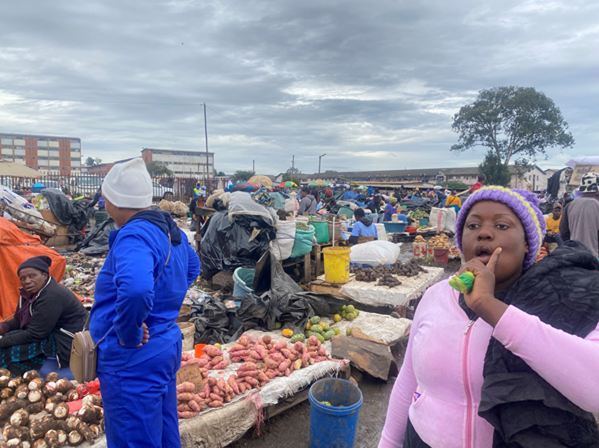In most African countries, the formal education system has not succeeded in creating conditions for knowledge to flow between different classes of economic actors and between the formal and informal economies. Consequently, the gap between formal and informal economic systems continues to widen as evidenced by how the informal economy fast becoming a secondary underground ecosystem whose systems cannot be easily understood by academics, policy makers and banks. Left to its own devices for decades, the secondary economy has developed its own self-contained systems anchored on mass markets and indigenous commercial best practices.

The power of a common language and shared perceptions of progress
Closing the gap between formal and informal economies requires policy makers to invest in carefully identifying knowledge supply chain nodes as well as the intricate ways through which information and knowledge moves together with commodities in mass markets. Supply chains in the secondary economy have become good at responding to shocks such as droughts and pandemics.
Governments speak in terms of administrative districts or counties, politicians speak in terms of wards and constituencies but the secondary economy speaks in terms of production zones, from which supply chains flow to consumption zones. Without a common language and shared perceptions of progress between policy makers and actors in the secondary economy, it remains difficult to promote business-oriented and nutrition-sensitive approaches for rural development. For instance, a business approach to agriculture development requires extension officers to work as investment advisors building on the amount of knowledge they have built over years about the farming communities in which they have worked. When farmers have mastered production skills and practices, it doesn’t help to continue preaching the same extension message. Changing the roles of agricultural extension officers should see them identifying missing skills in their communities and mobilizing other forms of expertise such as nutrition, sociology, engineering and many others now badly required for holistic rural development.
Importance of dismantling administrative structures that side-line the majority
Knowledge flows continue to be impeded by administrative structures that African governments have adopted from their colonial masters. For instance, despite the rural population comprising the majority of consumers and producers, urban populations are prioritized in terms of support. Why should a province have one medical doctor when a city has several doctors yet the province has a bigger population? Enhancing knowledge flows will enable African governments to dismantle administrative structures that side-line the majority. Nutritionists, statisticians, engineers and other professionals should be found at rural community level. Nutrition messages should not be left to clinics that are more about treating diseases than promoting health and wellness.
Government procurement processes should also be democratized to improve knowledge flows between rural and urban areas. For instance, the way formal tenders are currently administered is an example of how colonial instruments continue to undermine African development and knowledge flows. The assumption is that registered companies are the only ones able to deliver yet that may not be very correct. What is the rationale of putting an advertisement on building goat pens in a newspaper that circulates in the city when some of the people best skilled to build goat pens are found in rural areas where newspapers are not found? This is how rural artisans, most of whom may not have company profiles, are excluded from applying their knowledge to economic development.
Instead of out-sourcing the development of extension policies to consultants, governments can easily conduct a down to earth needs assessment of services starting from the market going backwards to production. Given their presence in communities for a long time, extension officers should switch from providing generic extension advice to facilitating knowledge flow by collecting and packaging information from a wide range of farming households. That role can include conducting frequent needs assessments and processing information into knowledge-based solutions for local communities and policy makers. When extension officers are capacitated to become knowledge brokers, they acquire new skills in weaving local research and stories together toward building the intellectual and emotional muscle of farmers so that farmers become more curious about what is happening in diverse markets and other parts of the world.
Charles@knowledgetransafrica.com / charles@emkambo.co.zw /
Website: www.emkambo.co.zw / www.knowledgetransafrica.com
Mobile: 0772 137 717/ 0774 430 309/0712737430
